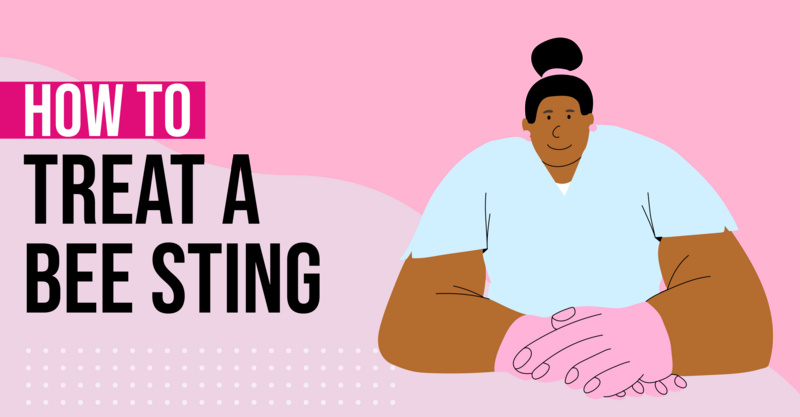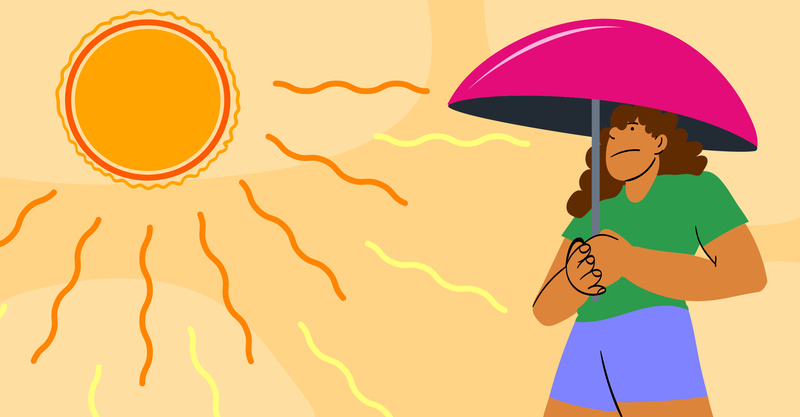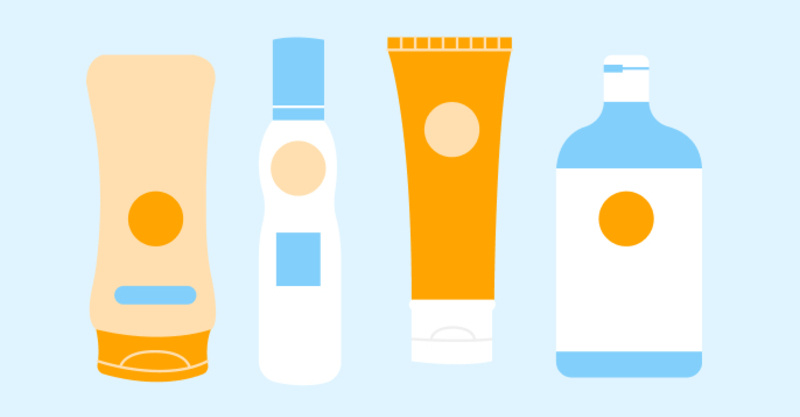Key Points
- The article discusses seven common causes of skin irritation during the summer, including heat rash, bug bites and stings, contact with poisonous plants, sunburn, dry skin, swimmer's itch, and infections or fungus.
- For each cause, it provides preventative measures and treatment options. For example, to prevent heat rash, it suggests wearing loose clothing and staying cool, while treatment for bug bites includes using hydrocortisone cream and watching for signs of severe allergic reactions.
- The article emphasizes the importance of prevention, such as using bug spray with DEET, wearing long-sleeved clothing when hiking, applying sunscreen with an SPF of at least 15, and avoiding swimming in marshy waters or places with many snails.
- It also provides advice for dealing with dry skin and foot fungus, recommending good moisturizing habits and wearing water shoes in shared spaces, respectively.
- Lastly, the article advises seeking medical attention for any skin irritations that do not go away, signs of severe allergic reactions, or signs of severe sunburn, as they can become life-threatening if not treated promptly.
Most causes of skin irritation are harmless, but some cases can put a damper on your summer fun if not properly treated. Below are seven of the most common ways that summer can irritate your skin and what you can do to avoid or treat them.
Heat Rash or "prickly heat"
Clogged sweat ducts are the cause of most heat rashes, according to the Mayo Clinic. This kind of rash can look like tiny bumps, sores, or blisters. Heat rashes often occur in the folds of your skin, and go away on their own in a few days. You can lower your risk of developing a heat rash by wearing loose clothing and keeping yourself cool to minimize sweating.
Bug Bites and Stings
Summer brings out hundreds of different insect species—making bug bites and stings more common. Even minor bites and stings can put a damper on your summer activities with pain, itching, swelling, and irritation. Some can even cause allergic reactions, including a severe allergic reaction known as anaphylaxis.
The American Academy of Dermatology (AAD) recommends you use a bug spray with DEET and wear clothing that covers as much skin as possible to avoid dealing with bug bites.
If you end up with a bite or a sting, the AAD recommends using over-the-counter hydrocortisone cream to help stop any itching and monitoring for signs of a severe allergic reaction, which can include swelling of the face or tongue, and trouble breathing.
Poisonous Plants
If you spend time camping or hiking, you could come in contact with dangerous plants like poison ivy, poison oak, or stinging nettles. When it comes to poisonous plants, the best treatment is prevention. Remember: leaves of three, leave them be.
The Mayo Clinic recommends wearing long pants and long-sleeved shirts when out in foliage—as well as staying on cleared paths and trails as much as possible. If you come in contact with anything that is causing skin irritation, they recommend that you use hydrocortisone cream or calamine lotion to reduce itching.
Sunburn
Sunburns can happen quickly and put a painful stop to summer fun. The CDC recommends that you apply a broad-spectrum sunscreen with an SPF of at least 15 and reapply the sunscreen as often as the package directions say.
If you find yourself dealing with a sunburn, the AAD recommends the following steps:
- Take cool baths or showers to help relieve the pain
- Use a moisturizer that contains aloe vera or soy to help soothe sunburned skin
- Consider taking ibuprofen or acetaminophen to help reduce any swelling, redness, and discomfort.
- Stay hydrated
- If your skin blisters, allow the blisters to heal
The AAD also notes that sunburns can cause lasting effects, including raising your risk of skin cancer, so it’s important to avoid sunburns and prolonged sun exposure as much as possible.
Dry skin
Hotter weather can increase your chances of developing dry skin. This is especially true if you live in a dryer climate. Getting older and having underlying health conditions can also contribute to dry skin, according to the AAD.
Dry skin can often cause itching and chafing—so it is important to keep your skin hydrated and strong. The AAD recommends healing your dry skin with good moisturizing habits (creams and ointments are better than lotions), drinking adequate amounts of water, and protecting your skin with sunscreen.
Swimmer’s itch
Swimmer’s itch happens when the microscopic larvae of certain parasites burrow into the first layers of skin. According to the CDC, the symptoms of swimmer’s itch usually include:
- Tingling, burning, or itching of the skin
- Small reddish pimples
- Blisters
The best way to protect yourself from getting swimmer’s itch is to avoid swimming in bodies of water that are marshy, have a lot of snails, or where warning signs of unsafe water are posted.
If you do find yourself with a case of swimmer’s itch, the CDC recommends using corticosteroid cream and cool compresses on the affected areas.
Infections and fungus
Going barefoot at the pool, beach, or locker room can increase the risk of contracting foot fungus. The CDC lists some things you can do to help prevent this from happening, such as:
- Keeping your feet clean and dry
- Wear water shoes when at the beach, pool, locker rooms, or in shared showering spaces
Since pedicures are more common in the summertime, it’s a great time to talk about what you can do to minimize your risks at a nail salon. The Cleveland Clinic recommends that you pre-screen your nail salon before visiting, to make sure they follow all the appropriate precautions for cleaning and sanitizing the tools they use.
For any of the skin irritations we’ve talked about here, it is important to remember that you should seek medical attention for any rashes that don't go away, signs of severe allergic reactions, or signs of severe sunburn. These conditions can become life-threatening if not treated promptly.
If you need to see a healthcare provider, use Solv to find an urgent care clinic near you.
Frequently asked questions
What are some common causes of skin irritation during the summer?
Some common causes of skin irritation during the summer include heat rash, bug bites and stings, contact with poisonous plants, sunburn, dry skin, swimmer’s itch, and infections or fungus.How can I prevent heat rash during the summer?
You can prevent heat rash during the summer by wearing loose clothing and keeping yourself cool to minimize sweating.What can I do to avoid bug bites and stings?
To avoid bug bites and stings, the American Academy of Dermatology recommends using a bug spray with DEET and wearing clothing that covers as much skin as possible.How can I protect myself from poisonous plants while camping or hiking?
The best way to protect yourself from poisonous plants is to wear long pants and long-sleeved shirts when out in foliage and stay on cleared paths and trails as much as possible. If you encounter any plant causing skin irritation, use hydrocortisone cream or calamine lotion to reduce itching.What are some effective ways to prevent sunburn?
To prevent sunburn, the CDC recommends applying a broad-spectrum sunscreen with an SPF of at least 15 and reapplying the sunscreen as often as the package directions say.How can I prevent dry skin during the summer?
To prevent dry skin during the summer, the American Academy of Dermatology recommends good moisturizing habits (creams and ointments are better than lotions), drinking adequate amounts of water, and protecting your skin with sunscreen.What can I do to avoid getting swimmer’s itch?
The best way to avoid swimmer’s itch is to avoid swimming in bodies of water that are marshy, have a lot of snails, or where warning signs of unsafe water are posted.How can I prevent foot fungus at the pool, beach, or locker room?
To prevent foot fungus, the CDC recommends keeping your feet clean and dry and wearing water shoes when at the beach, pool, locker rooms, or in shared showering spaces.
Solv has strict sourcing guidelines and relies on peer-reviewed studies, academic research institutions, and medical associations. We avoid using tertiary references.


 LinkedIn
LinkedIn










